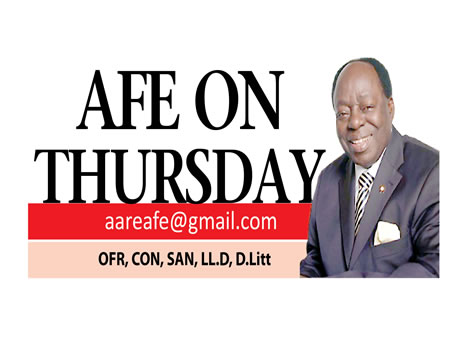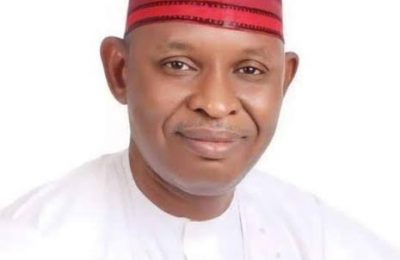IN this edition, I will attempt to briefly state some other factors which in my estimation play important roles in the making of leaders.
Training company and association

It is common knowledge that a man is affected by the company he keeps. Thus, a person who associates with others who have leadership traits and skills is likely to pick up and exhibit these traits himself. An English proverb confirms this principle to finality. It says:“Birds of the same feather flock together”.
Parental connection: Heritage
This is very much like the Trait theory. The only area of divergence is that in parental connection otherwise known as heritage, leadership skills are not necessarily inherited or inborn. They are more or less acquired by close association with older relatives.

Leadership training
In recognition of the fact that training plays an important role in the making of leaders, traditional history abounds with instances wherein traditional rulers sent their heirs to the throne to the courts or palaces of other monarchs to acquire the required experience and skills to enable them rule successfully over their own kingdom when they eventually ascend the throne. Thus it was not strange to find a Prince of Owobeing sent to the palace of an Oba far away from his own domain. A classical example presents itself in the case of the lateAlaafin of Oyo, Oba Lamidi Adeyemi, who spent a considerable period of time in the palace of the Alake of Egbaland, Oba Gbadebo, learning the skills required to preside over a kingdom as vast as Oyo. Interestingly, this practice was replicated albeit in another form in Medieval Europe right up to the 20th Century by means of intermarriage between the royal families of the major countries such as Spain, Russia, Holland, Austria, Norway, Sweden, France and the United Kingdom.
Schools and colleges
Another factor in the making of leaders that cannot be ignored is the role played by schools and institutions of learning. An institution of learning whether at the Primary, Secondary or Tertiary level is primarily placed to impact not only the academic growth of its students but also their moral, cultural and social upbringing which factors ultimately determine whether they will suitably fill the roles of leaders. Some years ago, His Royal Majesty, the late Alaafin of Oyo, Oba Lamidi Adeyemi II, a philosopher and well-read Oba at Afe Babalola University said:“the greatest benefit that education confers on an individual is character. Character is determined by three important factors; heredity, environment and training. For the first time in this country, we have seen somebody put into practice these parameters of character moulding. We have in this environment, a conducive atmosphere that will sustain and encourage learning, well stocked library, professionals of high quality, all from the singular effort of a single person”.
Teachers play an important role in the establishment and ultimate attainment of goals by their pupils. In our time, we were constantly prodded to embrace the challenges of life with vigour. It was not uncommon to hear teachers telling hardworking pupils that they would become successful in life at whatever endeavour they set their hands on. Some institutions obviously excelled more than others at preparing their students for the challenges of life. In Nigeria, some institutions were noted for the leadership qualities of their products. The Christ School, Ado- Ekiti, CMS Grammar School Lagos, Government College Ibadan, Abeokuta Grammar School, Abeokuta, Baptist Boys High School, Abeokuta, Barewa College, Zaria, Kings College, Lagos, all fall into this category.
In the United States of America, Yale, Stanford and Harvard Universities are noted for the fact that they have produced several leading figures in the history of the country with the latter producing several Presidents including Barrack Obama.
Professions
Some professional callings by the nature of the instructions leading to qualifications necessarily impart certain traits on their practitioners which in turn equip them well for leadership roles.
(a) The law profession
The law profession to which I belong is designed in such a way as to make lawyers deep thinkers. Lawyers are by the rules of professional conduct and etiquette required to imbibe and exhibit a very high standard of moral and professional conduct. In history, lawyers have played a significant role in the development of their countries. Several Presidents of the United States of America, Prime Ministers of Great Britain were lawyers. The great Nelson Mandela and Mahatma Ghandhi referred to earlier both practised as Lawyers, Chief Obafemi Awolowo of Nigeria was also a lawyer.
(b) The military profession
The military is a profession that is founded on discipline. This is attained through the impartation of leadership skills through training of Officers and enlisted men. The US Army in 1973 laid down 11 principles of leadership. These are;
- Know yourself and seek self-improvement – In order to know yourself, you have to understand your “be, know and do” attributes. Seeking self-improvement means continually strengthening your attributes. This can be accomplished through self-study, formal classes, reflection, and interacting with others. 2. Be technically proficient – As a leader, you must know your job and have a solid familiarity with your employees’ tasks.
- Seek responsibility and take responsibility for your actions – Search for ways to guide your organization to new heights. And when things go wrong, they always do sooner or later – do not blame others. Analyse the situations, take corrective action, and move on to the next challenge. 4. Make sound and timely decisions – Use good problem solving, decision making and planning tools. 5. Set the examples – Be a good role model for your employees. They must not only hear what they are expected to do, but also see. We must become the change we want to see -Mahatma Ghandi. 6. Know your people and look out for their well-being – ¬Know human nature and the importance of sincerely caring for our workers. 7. Keep your workers informed – Know how to communicate with not only them, but also seniors and other key people. 8. Develop a sense of responsibility in your workers -Help to develop good character traits that will help them carry out their professional responsibilities. 9. Ensure that tasks are understood, supervised and accomplished – Communication is the key to this responsibility. 10. Train as a team – Although, many so-called leaders call their organisations, departments, sectionsetc a team, they are not really teams ….. they are just a group of people doing their jobs. 11. Use the full capabilities of your organization – By developing a team spirit, you will be able to employ your organization, department, section etc to its fullest capabilities.
With the above principles, it is not a surprise that men such as General Dwight Eisenhower and General Collin Powel after their military careers returned to serve their country as President and Secretary of State respectively. The same applies to General George Marshall whose plan -the Marshall Plan – for the reconstruction of Europe after World War II has become a reference point or an acronym of sorts for large scale and intense action designed to meet emergencies of catastrophic proportions.
To be continued…..
Please send your comments and suggestions to president@abuad.edu.ng
AARE AFE BABALOLA, OFR, CON, SAN, LL.D (Lond.)







